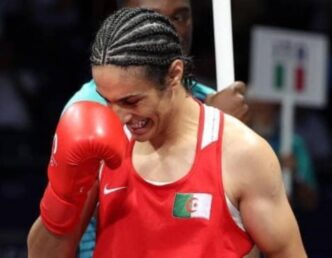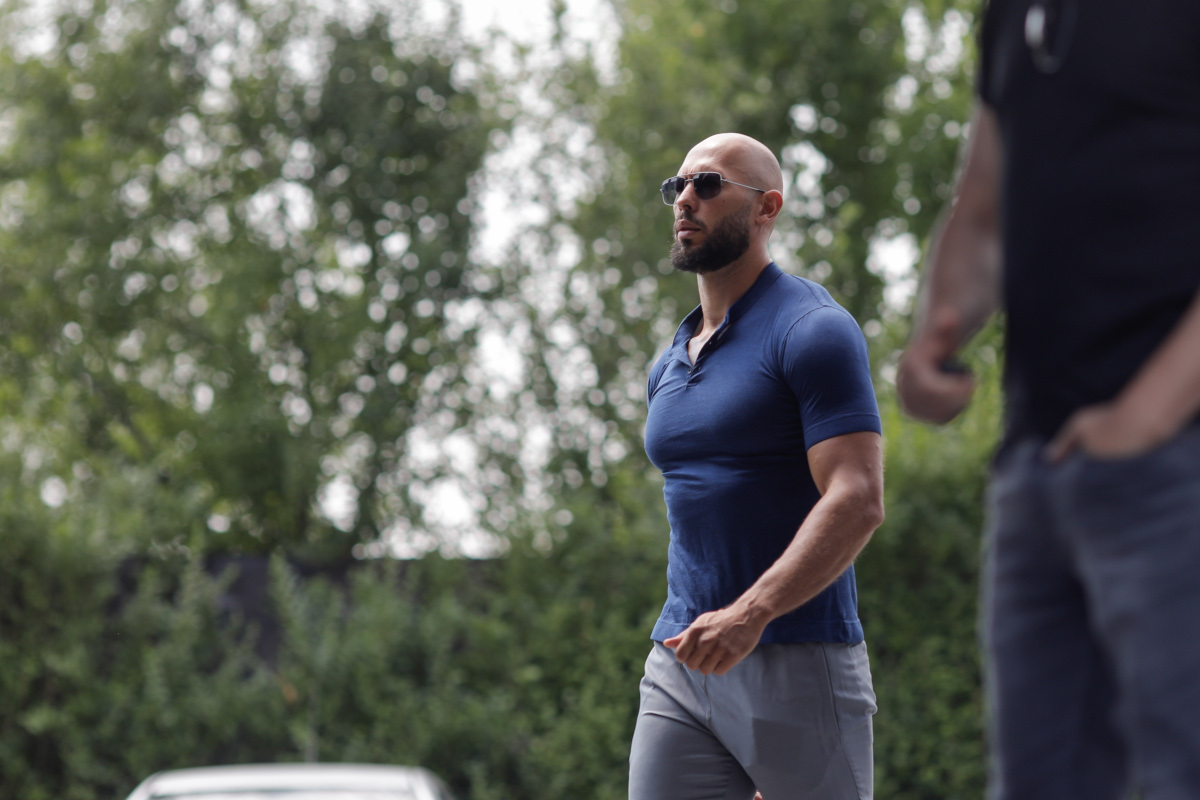The controversial victory of the Algerian boxer Imane Khelif at the Olympic Games in Paris has sparked a wave of hatred in the public space, especially on social media. For starters, it kicked off a heated debate about the place of transgender women in competitive sports, and yet, despite claims in the media and on social networks, later fueled by celebrities such as Elon Musk and JK Rowling, Khelif is not a transgender woman. Moreover, the allegations that she has male chromosomes stem from a test with unreleased results carried out by a sports association that has been barred from partaking in the Olympics.
Instead, her 46-second win over Italy’s Angela Carini brought two topics back into the international spotlight: that of hyperandrogenism, a rare hormonal condition that is still a grey area in high-level sport, and that of corruption and conflicts between the institutions that regulate amateur boxing worldwide.
- Italy’s Angela Carini has apologized to Imane Khelif after she caused a scandal at the Olympics: “I’m sorry for what happened to her. I was furious because the Olympic dream was shattered so quickly,” she said belatedly, after photos of her on her knees went viral.”It’s not fair,” she dramatically told her coach after she abandoned the match. Details, here. The photos and her message sparked reactions at the highest level, including from Italy’s prime minister Giorgia Meloni.
After the initial scandal, in which several publications, including Eurosport.ro, claimed that the Algerian boxer is transgender, explanations have emerged that Imane Khelif is not a transgender person and did not undergo a sex reassignment operation, but was born physically female, with male chromosomes (XY instead of XX).
Moreover, as the Italian fact-checking portal facta.news points out, the claims that Imane Khelif has male chromosomes come from the International Boxing Association (IBA), based on tests of which the exact results have not been published so far. The IBA lost its status as organizer of boxing at the Olympics in 2023 after years of corruption related scandals.
Khelif herself has not commented on the allegations against her in the past two days, but in an interview with UNICEF in March, the sportswoman spoke about how as a child she managed to excel in soccer, which “is not seen as a game suitable for girls” in Algeria, and then boxing – although she spoke about her experience as a young athlete and the difficulties she faced, she did not mention at any point that she was transgender.
In a statement released Thursday, the International Olympic Committee said that all athletes taking part in the boxing tournament at the 2024 Olympics “comply with the eligibility and participation regulations” and with all medical regulations – and that the age and gender of the participants – and participants’ age and gender are confirmed on the basis of their passports.
This is an important detail, because in Algeria transgender people do not enjoy recognition before the law, and the country is recognized for not allowing gender markers to be changed on official documents. Cairo 52 Legal Research Institute notes a famous case in which Algerian authorities rejected a request for gender reassignment, citing Islamic Sharia principles and the need to uphold Algerian legal and social norms.
In any case, the Olympic authorities officially maintain that the source of the “current aggression” against the Algerian woman is not her sexual or gender identity, but a “sudden and arbitrary” decision in 2023 by the International Boxing Association.
The New Delhi championship and the secretive disqualification
Thursday’s match was the climax of the scandal, but Khelif’s mere presence at the Paris Olympics was already a controversial topic because she and Taiwanese athlete Lin Yu-ting were disqualified from last year’s World Boxing Championships in New Delhi for “failure to meet the eligibility criteria for participation in the women’s competition,” according to the IBA.
The decision has led to a number of conflicting theories and explanations. Shortly after the incident in New Delhi, the Algerian Olympic Committee said only that the athlete had been disqualified “for medical reasons”, but the Algerian media reported that it was allegedly due to high levels of testosterone in her system, according to Reuters.
IBA officials told The Guardian that the decision was made “following a comprehensive review and was intended to uphold the fairness and integrity of the competition,” but did not disclose details of the test:
- “Point to note, the athletes did not undergo a testosterone examination but were subject to a separate and recognized test, whereby the specifics remain confidential. This test conclusively indicated that both athletes did not meet the required necessary eligibility criteria and were found to have competitive advantages over other female competitors”, is the explanation offered on Thursday by the Association.
As a result of the IBA decision, Khelif lost the opportunity to fight for the gold medal in New Delhi just hours before entering the ring, and Lin Yu-ting, a double world champion, was stripped of the bronze medal she had won in the competition.
In this context, the International Olympic Committee said on Thursday that “the current aggression against these two sportswomen is entirely based on this arbitrary decision, which was taken without any due process”.
In particular, the IOC criticized the personal involvement of George A. Yerolimpos, secretary general and CEO of the IBA at the time, who, according to the minutes of the meeting available on the institution’s website, initially proposed that the athletes be disqualified. The IBA Council subsequently ratified the decision and called for the establishment of a procedure that could be included in the association’s rules and used in such cases in the future.
The IOC also pointed out that the two sportswomen have participated without any problems in various international amateur boxing competitions over the years, including some sanctioned by the IBA itself, and said that last year’s disqualification should not have occurred after Khelif and Yu-ting had gone through virtually the entire competition:
- “Eligibility rules should not be changed during ongoing competition, and any rule change must follow appropriate processes and should be based on scientific evidence”.
It’s worth noting that the International Boxing Association and the Olympic Committee have a years-long history of disputes, based largely on the way the IBA has been run by presidents from Uzbekistan and Russia, with the association’s finances being backed by Russian state-owned energy company Gazprom, and concerns about the integrity of the matches and judges, the Associated Press reports.
- At the 2023 World Championships, Khelif Imane defeated an athlete from Russia and one from Uzbekistan before being disqualified.
IBA officials have long been suspected of manipulating match results at various international competitions. The most famous example of this is the 2016 Rio Olympics, which became the subject of an independent investigation that uncovered widespread evidence of “corruption, bribery and manipulation of sports results,” according to The Guardian.
As a result, the IBA did not take part in organizing the Paris Olympics, as the organization was excluded from the Olympic Movement in 2023. It was the first time the International Olympic Committee has kicked out a governing body in the organization’s more than 130-year history.
Chromosomes and the “insurmountable biological advantage”
The exact results of the IBA tests have not been published, but the president of the association, Umar Kremlev, quoted by The Guardian, said they “proved that they (Khelif and Yu-ting , n. ed.) had XY chromosomes” – this is the usual combination of chromosomes in men, while XX is the combination in women.
As a Le Figaro analysis explains, if the claim is true, it could result in a condition called hyperandrogenism, an excess of male sex hormones that is a common outcome of intersexuality.
- Intersexuality is an umbrella term that describes a wide range of situations in which a person can be born with both female and male anatomical and biological traits – for example, a woman can be born with a combination of XX and XY chromosomes, according to the Intersex Society of North America.
The obvious advantages of male hormones for athletic performance have already been researched, including in a study published in the British Journal of Sports Medicine that looked at thousands of cases of athletes from different disciplines
Boxing was not among the sports analyzed, but it is already widely recognized that in contact sports there are significant differences in performance between men and women, even when competing in the same weight category.
This is exemplified by the case of Lucia Rijker, a multiple boxing and kickboxing world champion, recognized as one of the best female fighters in history. Her only defeat in the kickboxing ring came in 1994 in a demonstration match against a man. Somchai Jaidee, an amateur Muay Thai fighter (a Thai sport similar to kickboxing), scored a knockout in the second round. This remains the only notable bout of Jaidee’s career, as he has never turned professional.
In this context, concerns have arisen in the public space about Imane Khelif’s unfair advantage against other women and the potential for the Algerian to hurt her opponents in the ring. However, the record of Khelif, who has been active on the international amateur circuit for years, does not create the image of an undefeatable physical specimen.
According to BoxRec, Khelif, who has been boxing internationally since 2018, has a record of 37 wins (5 of them by knockout) and 9 losses. This calculation doesn’t take into account the 4 victories she got in the 2023 championship, when she was disqualified. The Algerian first reached the Olympics in 2020, at the age of 19, and came 17th in the 60kg category, the BBC reports.
It’s an impressive record, but not atypical for a top-level wrestler. Moreover, as the Associated Press and Sky Sports point out, despite Angela Carini’s claim that “I’ve never felt a punch like that before,” Khelif was not recognized for her power in the ring, evidenced by her unremarkable 13.51% knockout rate.
By comparison, Claressa Shields, two-time Olympic middleweight champion and considered one of the best female boxers in the last decades, had a record of 63 wins with a 17.46% KO rate and just one defeat before turning pro, where she continues to dominate to this date with 15 wins and no losses.
Even Amy Broadhurst, the last athlete to defeat Khelif in the ring in 2022, has a higher KO rat, sitting at 14.29%.
Broadhurst, incidentally, was keen to point this out after the scandal broke: ‘Personally, I don’t think she did anything to “cheat”. The fact that she’s been (beaten) by 9 women before says it all,” said the British boxer, as quoted by PBS,
Ne bucurăm că ne citești!
Dacă vrei să ne și susții:











